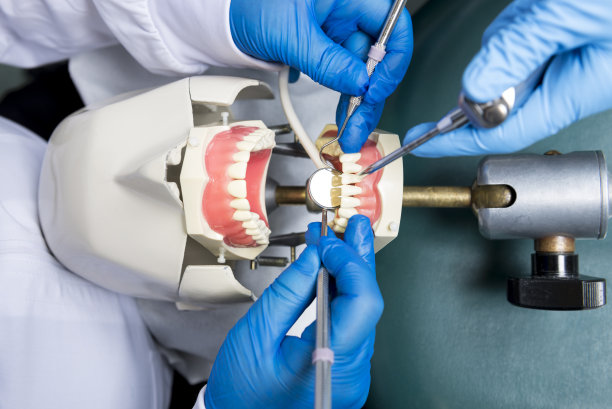Summary: Dental implants provide an effective solution for restoring missing teeth, improving not only functionality but also aesthetics. This comprehensive guide walks through the benefits of dental implants, the important considerations before opting for the treatment, and practical recovery steps to achieve a healthy smile. By understanding these aspects, individuals can make informed decisions about their dental health, ensuring a seamless journey towards a perfect smile.
1. Benefits of Dental Implants for Oral Health

Dental implants are often touted as the gold standard in tooth replacement. Unlike dentures, which can slip or cause discomfort, implants are fixed securely in the jawbone, providing a stable foundation for artificial teeth. This stability not only enhances comfort but also allows individuals to eat and speak without the fear of their replacements shifting, leading to increased confidence in social situations.
Another significant benefit is that dental implants help preserve jawbone health. When a tooth is lost, the underlying bone can begin to deteriorate over time. Implants act as artificial tooth roots, stimulating the bone just like natural teeth would. This stimulation helps to maintain bone density and prevent the sunken facial appearance that can accompany tooth loss.
Additionally, dental implants can positively impact overall oral hygiene. With individual implants, patients can easily brush and floss, much like natural teeth. This makes it less likely that food particles will get trapped and leads to a reduced risk of gum disease compared to traditional dentures that can be more challenging to clean.
2. Considerations Before Dental Implant Treatment
Before proceeding with dental implant treatment, several important considerations should be understood. Firstly, not everyone is a candidate for implants; candidates need to have sufficient bone density and healthy gums. Hence, a thorough assessment by a dental professional is essential, involving imaging and medical history evaluations to determine suitability.
Financial considerations also come into play, as dental implants can be more expensive than other methods like dentures or bridges. It’s crucial for patients to weigh the long-term value and durability of implants against their initial investments. Discussing payment plans or insurance coverage with the dental provider may also help alleviate some financial burdens.
Finally, it is important to set realistic expectations about the treatment timeline. The process is not instantaneous and may require several months to fully integrate the implant into the jawbone. Planning and patience are key to achieving a successful outcome, and being well-informed can help manage any potential anxieties surrounding the lengthy process.
3. Recovery Steps for a Smooth Healing Process
The recovery from dental implant surgery varies from person to person, but some general guidelines can help facilitate a smoother healing process. Initially, its advised to rest and avoid strenuous activities for a few days. This period is crucial for proper healing and integration of the implant into the bone structure.
Following the procedure, post-operative care is essential. Patients should adhere to prescribed medications for pain management and antibiotics to prevent infection. Additionally, maintaining oral hygiene while being gentle around the surgical site is important. Patients should follow their dentists advice on what to eat during the recovery period, typically starting with softer foods.
Regular follow-up appointments with the dental professional are required to monitor the healing progress. Theyll ensure that the implant integrates properly with the bone and identify any complications early on. Adhering to all recommendations during this recovery phase is vital to achieving the desired long-term results.
4. Long-Term Care for Dental Implants
Once recovery is complete, long-term care for dental implants is relatively straightforward but crucial for maintaining their functionality and appearance. Regular dental checkups, just like with natural teeth, allow for professional cleanings and the early detection of potential issues.
Daily oral hygiene practices are also vital. Brushing twice a day and flossing should be maintained to protect both the implants and surrounding gum tissue. Patients may also benefit from using antibacterial mouthwash as a preventive measure against gum disease.
Finally, adopting a healthy lifestyle that includes a balanced diet and avoiding tobacco can enhance not only implant longevity but overall dental health. Staying informed and engaged in one’s oral health care can ensure that the investment in dental implants pays off in a radiant, healthy smile for years to come.
Summary:
In conclusion, dental implants offer significant advantages for restoring oral functionality and aesthetics while also contributing positively to overall oral health. While considerations such as candidacy, costs, and treatment timelines are pivotal, understanding recovery and long-term care can empower patients to make informed decisions for sustained dental wellness.
This article is compiled by Vickong Dental and the content is for reference only.
Vickong Dental
Vickong Dental is a large medical group established in Hong Kong in 2008 by professors from well-known medical universities in Guangdong and Hong Kong, as well as medical doctors from key national '985' universities (including Master's supervisors and senior professors). The chain of branches brings together expert dentists with PhDs and Master's degrees from Hong Kong and Mainland China, committed to providing high-quality dental treatment.
"Vickong Dental Practices the University Motto of 'Healing and Serving Society,' with a Stable Operation for Sixteen Years. It Has Been honored with Hong Kong Enterprise Leaders's Choice,' and is a Global Trusted Implant Center for the Nobel Implant System. Recommended by Hong Kong Metro Broadcast and Guangdong Television, it Serves Customers from Over Thirty Countries and Regions, Gaining the Trust and Favor of Citizens from the Guangdong-Hong Kong-Macau Greater Bay Area and Surrounding Cities.

Thousands of customers' unanimous praise
The most recognized and highly recommended dental service by customers in the Guangdong-Hong Kong-Macau Greater Bay Area
We Ensure You Receive Detailed Care and Attention Here
Hong Kong standards, Shenzhen prices, Your Trusted English-speaking dentists

Vickong Dental Medical-Grade Instrument Disinfection Process
Vickong Dental Medical-Grade Instrument Disinfection Process

Vickong Dental Chain: A Warm and Comfortable Environment for Treatment






Appointment Hours

Q&A
Why choose Vickong Dental?
Vickong Dental practices the university motto 「Medicine to Benefit Society」, with each branch bringing together highly qualified dentists with doctoral and master’s degrees from Hong Kong and the Mainland, and has maintained seventeen years of steady operation。Recipient of 「2024 Hong Kong Enterprise Leaders Brand」, 「2025 Hong Kong Enterprise Leaders Brand」, a Nobel Biocare Global Trusted Implant Center, and a brand recommended by Metro Radio Hong Kong and Guangdong TV。
To date, we have served customers from more than thirty countries and regions,earning exceptionally high word-of-mouth recognition and trusted recommendations from residents across the Guangdong-Hong Kong-Macao Greater Bay Area and surrounding cities
We have eight major branches in Zhuhai、Shenzhen,and a consultation and service assurance center in Hong Kong,so you can book a free consultation at any time for any questions,which is very reassuring.
If I do not accept the quotation after the CT scan, will I be charged??
No! As long as the actual treatment has not started, you will not be charged any fees.
Will there be any additional charges during the treatment process?
No, there won’t be any additional charges. Before treatment begins, we will clearly explain the treatment plan and its corresponding fees. Only after the patient agrees and signs the consent form will we proceed with the dental service.
Can I pay in Hong Kong dollars?
Yes. Vickong Dental accepts payment in Hong Kong dollars. The amount will be converted based on the exchange rate of the day, and the applicable rate will be clearly communicated to you in advance.
Can I reschedule my appointment at any time?
Yes. Please contact us via **WeChat** or **WhatsApp** as early as possible, providing your original appointment time and details, along with your preferred new date and time slot for rescheduling.













